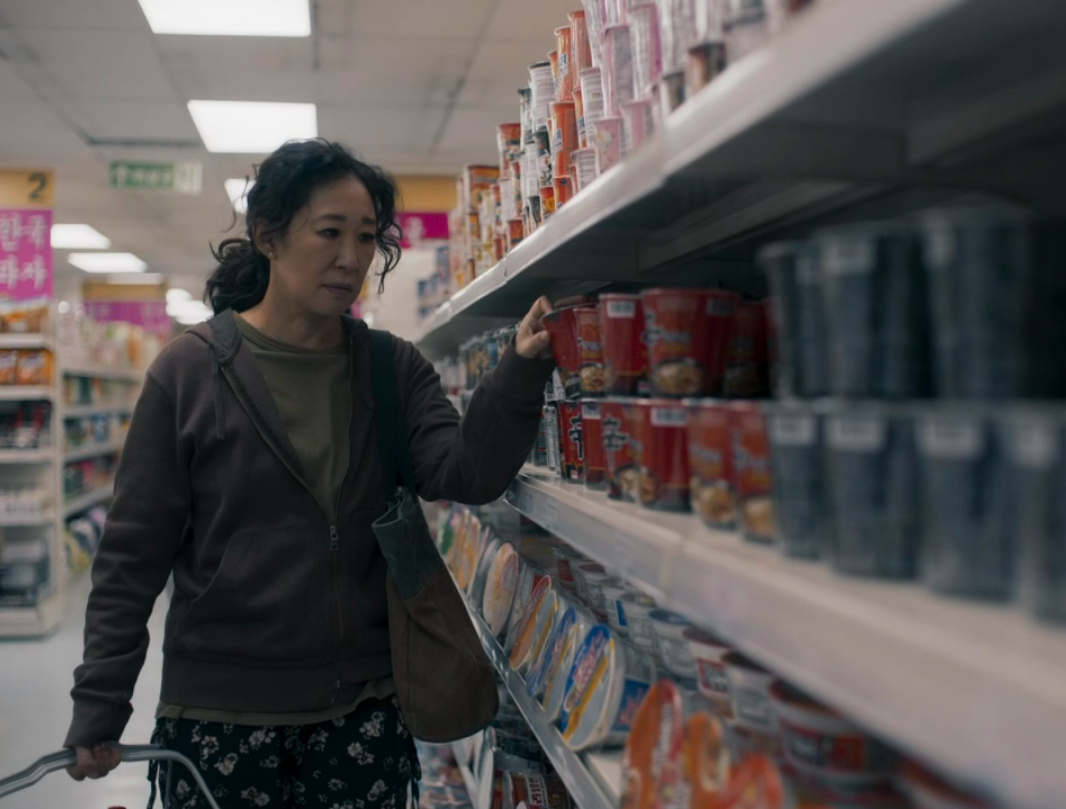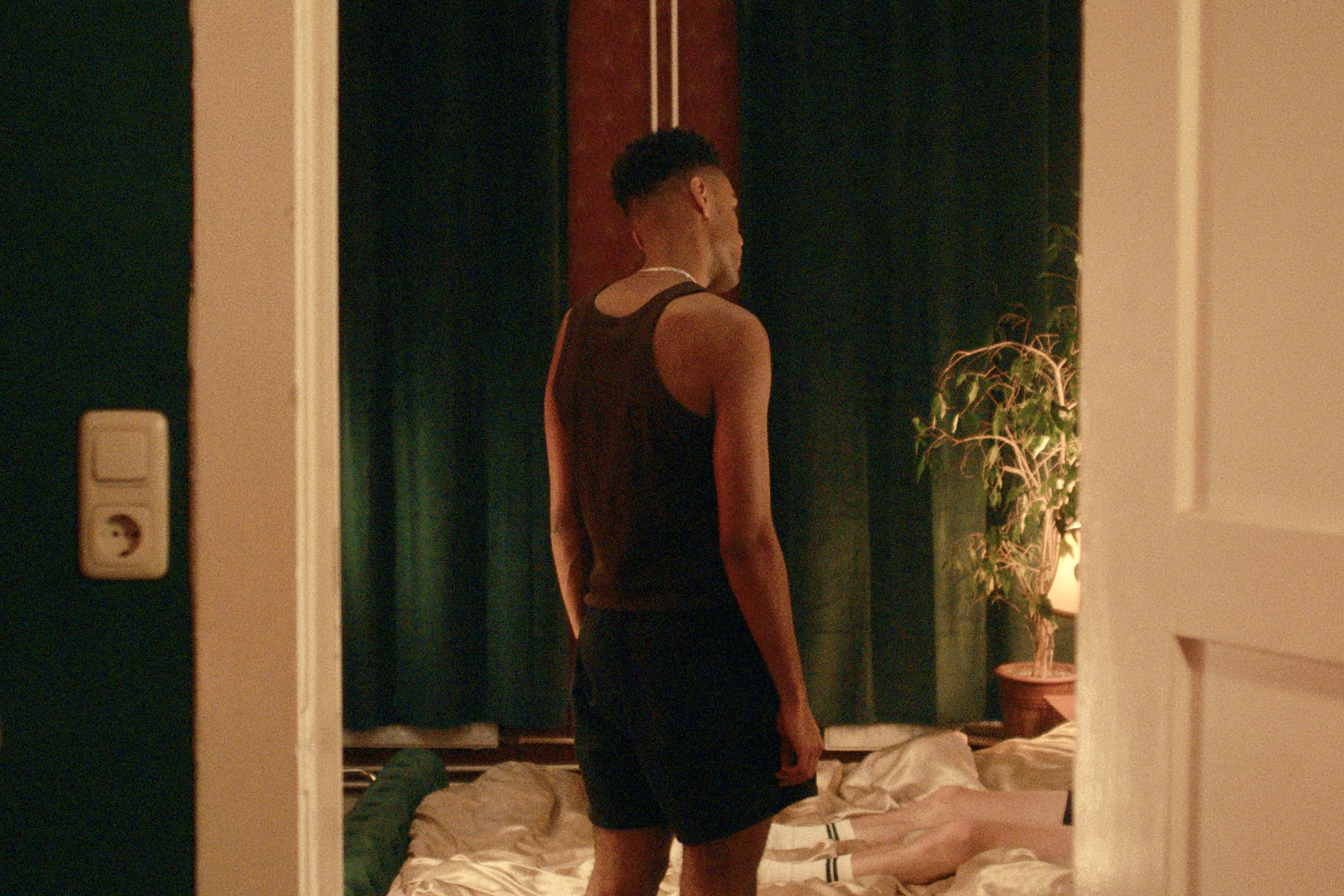
Lamin Leroy Gibba as 'Malik', in a still from Hundefreund, courtesy of Malcolm Louis Reiss
Hundefreund at BFI Flare puts Germany’s microaggressions under the microscope
Through exploring a hellish date, this film makes a striking comment about Germany's uncomfortable relationship with race.
Asiya Ahmed
18 Mar 2022
Malik paces around his chic Berlin apartment, burning a stick of Palo Santo while waiting for his date to arrive. On the phone to a friend, he insists he’s not looking for a relationship. “I’m alone. But I’m not lonely,” he says. Gazing into a long mirror, Malik carefully inspects his outfit before changing into a sleek blue shirt – left open to reveal a tight crop top underneath. The bell rings, Phillip has arrived. The tall broad character enters nonchalantly, exuding an air of dominance. His first words, spoken rudely: “What’s that smell?”
Hundefreund (Dogfriend) premieres at the British Film Institute’s Flare Festival – Europe’s biggest LGBTQ+ film festival – on March 19. Through dark humour and careful insight, the short film tells the story of two people stuck having a conversation about racism that neither wants to have. Malik (Lamin Leroy Gibba), an Afro-German, and Phillip (Til Schindler), a white German, meet for a date in Malik’s apartment. As soon as Phillip pulls through, one thing becomes glaringly obvious; the pair are very much into each other, albeit in their own ways.
“Through dark humour and careful insight, the short film tells the story of two people stuck having a conversation about racism that neither wants to have”
Malik chooses to ignore the red flags, but the tables quickly turn when Phillip exposes what he thinks about migration into Germany. The conversation continues with mutual frustration, as Malik challenges Phillip, who then offers excuses for his recycled Nazi rhetoric by saying he works with refugees.
Rarely do we see an interaction like this on screen – let alone in German – where a fed-up Black character is forced to shut down the frantic pleas of a white character, who will not stop until confirmed as “not a racist”. Tensions flare as Malik resists Phillip’s forceful demands to speak about racism. “It’s important to talk about racism,” he proclaims, persistently ignoring Malik’s clear request to shelve that conversation. Malik’s pain is front and centre, but at no moment is he portrayed as a victim. A beautifully complex character, Malik is full of contradictions in his own right. “He’s allowed to be human. We cringe at what he does,” says 27-year old actor, writer and filmmaker, Lamin Leroy Gibba, who both wrote the Hundefreund script and played Malik’s character.
Lamin also paid special attention when writing Phillip’s character. “We were trying to exchange judgement with curiosity,” he tells gal-dem. “It was really important to us that Philip was also a full complex human being.” The Hundefreund crew journeyed through new waters in their exploration of a character that usually escapes all forms of criticism: the “good white German humanitarian”, supporting refugees and their residency in Germany.
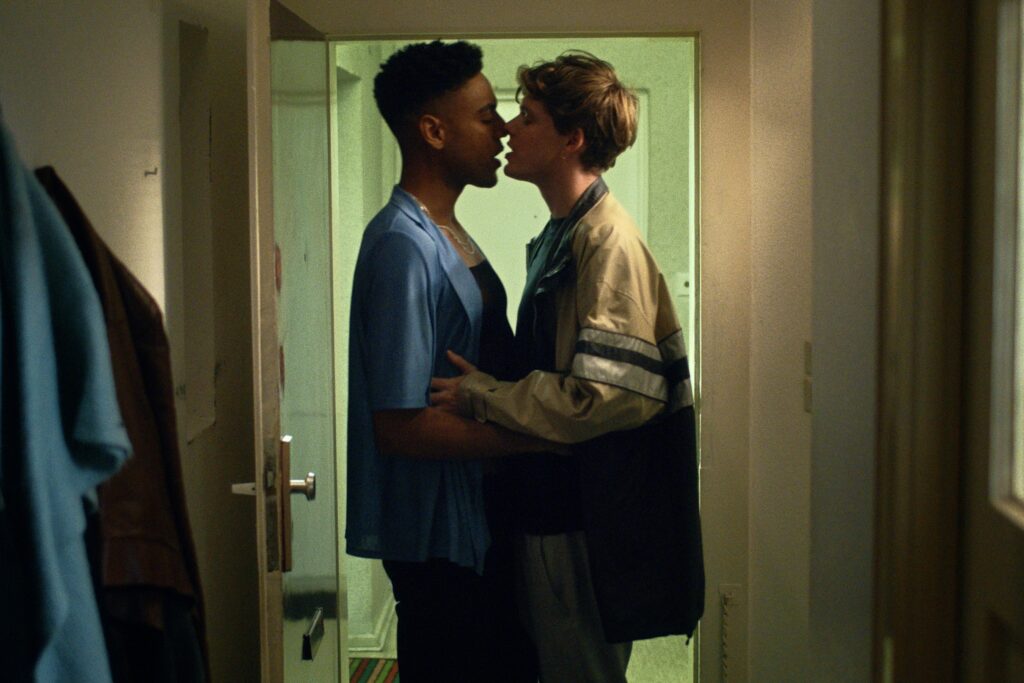
“He thinks he’s really understood racism, he’s really got it, and has read all the books. He isn’t someone who doesn’t know what’s going on,” Malik says of Phillip. Even with his ample knowledge about racism, Phillip’s stiff emotional core blocks him from acting sensitively. Instead, he avoids and deflects, and acts in an almost robotic and paternalising manner at times. He follows his own book-learned script, and can’t connect to what the person right in front of him is asking of him: to stop. Instead, he digs himself deeper and deeper into a rabbit-hole, and this is where the film’s dark humour really shines through.
Yet although we watch Phillip uncomfortably contort his arguments through the course of the film, it is really Malik’s journey we are watching. “The story always comes back to Malik,” says Lamin. “Malik has feelings for Phillip, and the story isn’t just a discussion about race in Germany, but rather an exploration of what happens when the person you have a crush on or you’re in love with can’t really see you,” he adds.
“The story isn’t just a discussion about race in Germany, but rather an exploration of what happens when the person you have a crush on or you’re in love with can’t really see you”
Lamin Leroy Gibba
Producer Sailesh Naidu explains that though Hundefreund follows the story of a date gone south, the film isn’t necessarily about dating. “The film is like a microcosm that talks about the larger issues of structural racism in the West,” they say. “You cannot escape it in your room of intimacy, you cannot escape it when you’re walking down the street, you cannot escape it when you turn on the television.”
The story of Hundefreund was born from Sailesh’s own quest for intimacy and connection. A 37-year old non-binary poet, filmmaker, and researcher from the US, they were brought to Germany by the Federal Government to conduct research around migration and refugees five years ago. On one particular date in Berlin, a white man insisted on explaining Sailesh’s own topics of research to them, followed by spiralling into a flow of racist commentary about refugees.
As the conversation escalated further, Sailesh left the date. But they look back on a painful wider pattern of how they would repeatedly find themselves in similar situations in the world of romance. “I was so angry at myself for once again finding myself in the same conversation, not just about racism, but also trying to justify my own existence,” they say.
Discussions around race in Germany are known to be rife with denial, against the backdrop of a thriving violent far-right scene. Germany’s refusal to collect statistics around race has limited space for discussion, and many believe it’s “allowing racism to flourish”.
Maissa Lihedheb, a 28-year-old German-Tunisian filmmaker and director of Hundefreund, highlights a lack of basic support and resources for young Black and brown Germans trying to make it in the media industry. “Germany is so behind in the conversation around race,” she says.
“Germany is so behind in the conversation around race”
Maissa Lihedheb
One example with the prestigious DFFB German film school illustrates this perfectly. She describes being offered a cast of all-white actors for a directing exercise focussed on Hundefreund in order to gain her place on the course. “I didn’t know how to direct a white man playing a Black character,” she says laughing. The school ended up as one of four German film schools that rejected Maissa before she took matters into her own hands and launched the BIPOC film society in Berlin in May 2020. It was through the society’s network that Hundefreund was made possible, and produced from start to finish by an almost entirely queer Black and brown film crew – a rarity in the German, and international, film industry.
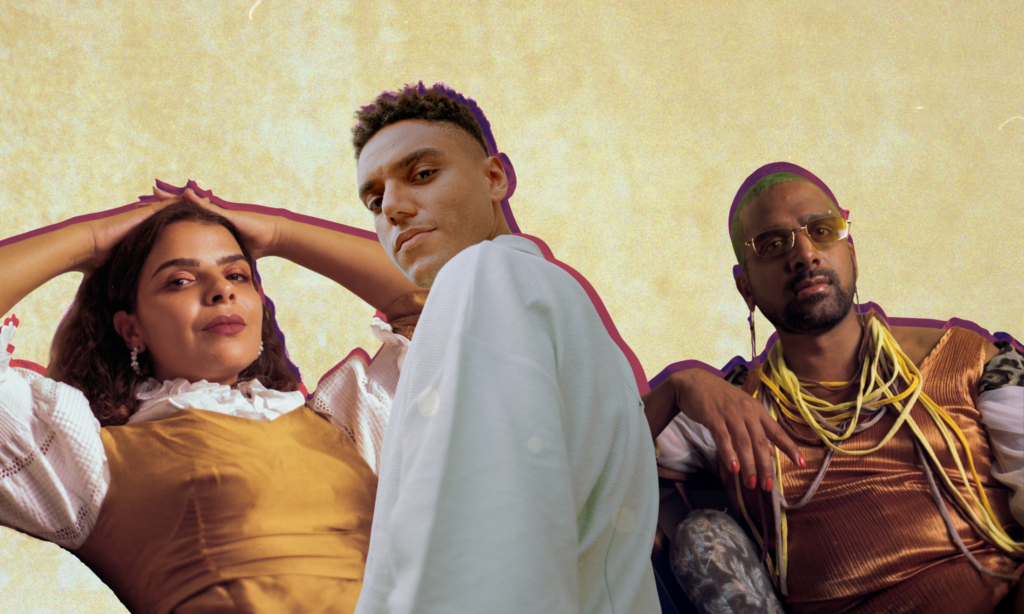
Photography by Jerry Joe and Louis Malcolm Reiss
Perhaps it was a blessing in disguise for Maissa to avoid German film schools, because in March 2022, she was accepted into both New York University Tisch School of the Arts and The American Film Institute – the latter being one of the world’s top film schools with a less than one percent acceptance rate and a long list of Academy Award nominees and winners.
The filmmakers say that after receiving news of their German government funding, Hundefreund became more of a project than a film for them. With a non-binary brown producer, a German-Tunisian femme director, an Afro-German screenwriter/actor, and a team of queer Black and brown people at all levels of production, it wasn’t just the story that was being told, but the people who were telling the story that became the real gem. “We need to tell our own stories. We need our subjectivity to be on screen,” says Lamin, overjoyed at how far the team has come.
In schools, on screen, and within bedrooms, being able to show and interrogate racism in Black and brown art is empowering. Hundefreund follows an honest exploration about the ups and downs experienced by Black and brown people in the quest for intimacy. But the film also refreshingly casts a sharp look at why we do the things we do, and what we sometimes sacrifice in pursuit of love.
Like what you’re reading? Our groundbreaking journalism relies on the crucial support of a community of gal-dem members. We would not be able to continue to hold truth to power in this industry without them, and you can support us from £5 per month – less than a weekly coffee.
Our members get exclusive access to events, discounts from independent brands, newsletters from our editors, quarterly gifts, print magazines, and so much more!
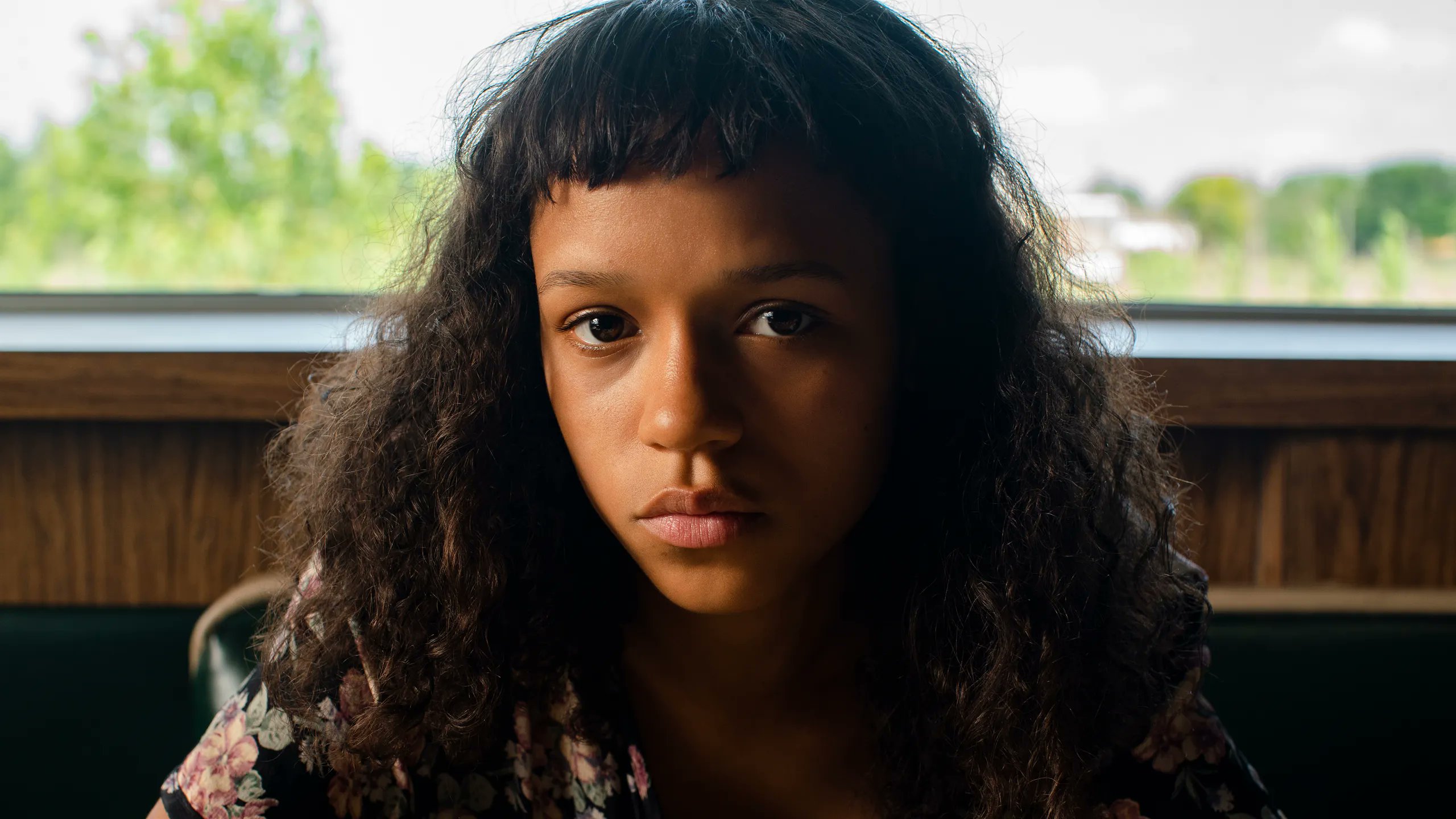
She ate: Maren’s Bones and All journey is a metaphor for radical self-acceptance

Twin Flames: Maybe Love is Blind’s Cole and Zanab were gaslighting each other

Sex Education’s Maeve and Isaac caravan canoodle is a romantic scene like no other
